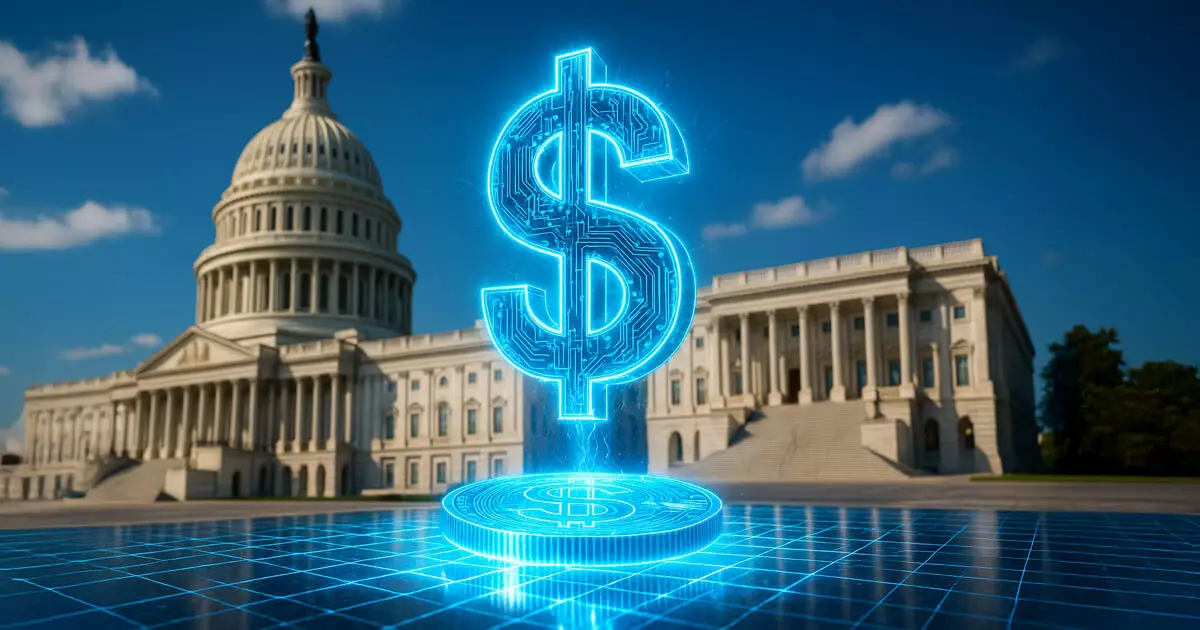As the digital asset landscape continues to expand at breakneck speed, Congressional efforts to regulate stablecoins have reached a critical juncture. Leading the charge is the GENIUS Act (Guiding and Establishing National Innovation for U.S. Stablecoins), a comprehensive federal policy proposed by Senate Republicans. The stark urgency behind this legislation stems from the existing instability and ambiguity surrounding stablecoins, which now possess a total capitalization exceeding $241 billion. With industry giants like Tether and Circle insulating a substantial share of this market, our lawmakers face the momentous task of ensuring American dominance in the evolution of digital assets while safeguarding consumer interests.
By expediting the vote on such a landmark piece of legislation, the Senate recognizes that the current regulatory vacuum could potentially allow foreign entities to dictate the future of digital currency in the U.S. The GENIUS Act not only seeks to mandate a 1:1 cash backing for payment stablecoins but also establishes a framework that harmonizes federal oversight with state-level regulations. In a world where currency sovereignty is increasingly threatened, we cannot afford to lag behind.
Amidst Bipartisan Support, Divisive Concerns Emerge
It is worth noting the bipartisan support the GENIUS Act has garnered thus far. With an 18-6 vote in favor from the Senate Banking Committee, the proposed legislation reflects a collective acknowledgment of the urgent need for a coherent regulatory environment. Conservative voices, such as Senators Bill Hagerty and Cynthia Lummis, have praised the bill, positioning it as a means to not only preserve the supremacy of the U.S. dollar but also to prevent inconsistent, fragmented regulations that could hinder innovation.
However, lurking beneath this façade of unity are significant concerns that could jeopardize the legislation’s passage. Senator Elizabeth Warren has vehemently opposed the measure, warning of the potential for big-tech companies to monopolize the issuance of stablecoins. This apprehension is echoed by community banking organizations that fear displacement from traditional financial services, further exacerbating inequalities within the financial ecosystem. The possibility of big tech corporations wading into a domain designed to protect individual consumers raises alarm bells about the very intention of the GENIUS Act.
Navigating the Legislative Labyrinth
Though Senate Republicans have set their sights on swiftly passing the GENIUS Act, the path to an official vote is riddled with challenges. The need for at least seven Democratic votes to reach the procedural 60-vote threshold creates a high-stakes, chess-like atmosphere in Washington. Furthermore, with lawmakers like Kirsten Gillibrand and Mark Warner straddling the line between support and skepticism, the bill’s fate remains pendulous.
Even if the GENIUS Act surmounts Senate obstacles, discord with the House version poses another hurdle. The House Financial Services Committee has proposed a parallel bill with stricter disclosure mandates, reflecting heightened concerns over transparency and consumer protection. The ensuing negotiations may elongate the legislative process, prolonging a resolution that is vital for securing U.S. leadership in digital finance.
A Central Actor in the Future of Digital Finance
As the Federal Reserve weighs in on stablecoin oversight, the discourse surrounding the GENIUS Act becomes even more salient. Governor Christopher Waller’s advocacy for regulated token issuance by both banks and non-banks signifies a shift toward recognizing the legitimacy of stablecoins within the broader financial ecosystem.
What’s more, the GENIUS Act directly responds to the Trump-era push to maintain digital-dollar innovation on American soil. In a time when sovereignty over monetary systems is increasingly under threat from global competitors, the legislation could serve as a beacon of hope for those who champion fiscal independence. The delicate balance of regulation is essential; too much intervention risks innovation stifling, while too little could lead to catastrophes rooted in unregulated speculations.
Navigating the complexities of stablecoin regulation requires a centrist approach that acknowledges the diverse interests at play. Lawmakers must carefully hone the key components of the GENIUS Act to balance innovation, consumer protection, and market stability in a burgeoning landscape that warrants our utmost attention.
















Leave a Reply